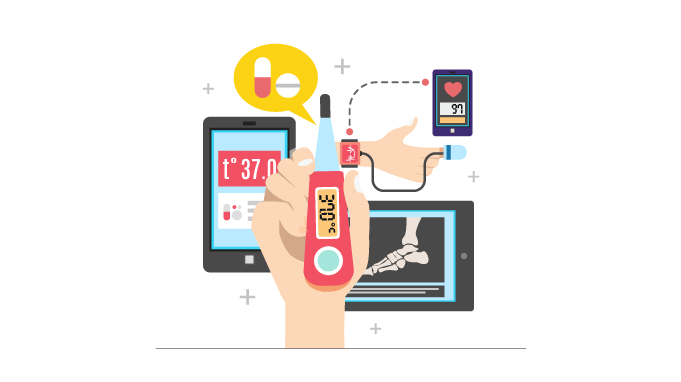Digital health applications, commonly known as health apps, have emerged as pivotal tools in empowering individuals to take charge of their health. From tracking daily fitness activities to managing chronic conditions, these apps offer a comprehensive approach to health management.
A. The Rise of Digital Health Applications
1. Evolution of Health Technology
The advent of smartphones and wearable devices has paved the way for health applications that monitor various aspects of personal health. These tools have transitioned from simple step counters to sophisticated platforms that track heart rate, sleep patterns, and even mental health indicators.
2. Accessibility and Convenience
Digital health apps provide users with immediate access to health information and resources. This convenience eliminates the need for frequent doctor visits for minor health concerns, allowing individuals to monitor and manage their health proactively.
B. Key Features of Digital Health Apps
1. Personalized Health Monitoring
Modern health apps offer personalized dashboards that display real-time data on various health metrics. Users can set goals, receive reminders, and track progress, fostering a proactive approach to health management.
2. Integration with Wearable Devices
Many health applications seamlessly integrate with wearable technology, such as fitness trackers and smartwatches. This integration allows for continuous monitoring of physical activities, sleep quality, and other vital signs.
3. Telemedicine Capabilities
Some advanced health apps facilitate virtual consultations with healthcare professionals. This feature is particularly beneficial for individuals in remote areas or those with mobility challenges, ensuring they receive timely medical advice.
C. Impact on Personal Well-being
1. Enhanced Self-awareness
By providing insights into daily habits and health patterns, digital health apps promote self-awareness. Users can identify areas of improvement and make informed decisions to enhance their well-being.
2. Encouragement of Healthy Habits
Regular notifications and goal-setting features motivate users to adopt healthier lifestyles. Whether it’s increasing daily steps or maintaining hydration levels, these apps serve as constant reminders to prioritize health.
3. Support for Mental Health
Beyond physical health, many applications offer resources for mental well-being. Features such as guided meditation, mood tracking, and stress management tools provide holistic support to users.
D. Challenges and Considerations
1. Data Privacy Concerns
With the collection of sensitive health data, ensuring user privacy is paramount. Developers must implement robust security measures to protect user information from potential breaches.
2. Accuracy and Reliability
The effectiveness of health apps hinges on the accuracy of the data they provide. Inaccurate readings can lead to misguided health decisions, emphasizing the need for continuous validation and updates.
3. Digital Divide
Not all individuals have equal access to smartphones or the internet. This digital divide can limit the reach of health applications, underscoring the importance of inclusive solutions that cater to diverse populations.
E. The Future of Digital Health Applications
1. Integration of Artificial Intelligence
The incorporation of AI can enhance the predictive capabilities of health apps, offering personalized recommendations based on user data. This advancement can lead to more effective health interventions and outcomes.
2. Expansion into Chronic Disease Management
Future developments may see health apps playing a more significant role in managing chronic conditions. By monitoring symptoms and medication adherence, these tools can assist in reducing hospital visits and improving quality of life.
3. Collaboration with Healthcare Systems
Strengthening the collaboration between digital health applications and traditional healthcare systems can lead to more comprehensive care. Sharing data between apps and healthcare providers ensures continuity and coherence in patient care.
Conclusion
Digital health applications have undeniably transformed personal well-being, offering tools that empower individuals to take proactive steps towards healthier lives. While challenges such as data privacy and accessibility persist, the continuous evolution of technology promises a future where health management is more personalized, efficient, and inclusive.














